‘Wow, Pat, we crossed all of Ghana in 3 weeks, and in the days we stayed with you we saw most of the real Ghanaian culture’
I’ve been hearing these sorts of comments from guests for years. Which is quite special since I am a Dutch owner. And strangely enough, I have never really written about it, while team Moon&Star and I are very proud of these kinds of compliments. With this blog, I will take you with our tour guide, Felix, on a walk through our beloved Banko and I will share 5 tips to discover the ‘real’ and ‘authentic’ Ghana.
I have placed authentic and real in quotation marks because I often wonder what that actually means, authentic and real. These words are very often used in connection with vacation trips to Africa. The other day I heard someone say that they had been to a really authentic region because it was not yet developed. So when a place is not developed, then it is authentic and real? Then the Netherlands is extremely unreal. Anyway, it’s time to start the walk.
What do ghanaians do for a living?
The guests are waiting for Felix to put on his flashy shoes and are already at the gate. But no, Felix takes the machete and says we’re going to the forest first. One of the guests asks why, since it’s a village tour. Felix’s answer is simple. Because you want to learn about the Ghanaian culture and 52% of the Ghanaian population works in agriculture. And I’m going to show you some of that first.
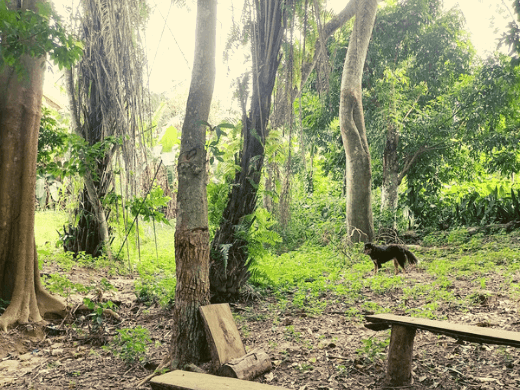
We first walk through a piece of the guesthouse’s private forest. Are there snakes here is the next question…. Yes says Felix in Ghana there are snakes but don’t worry, I’m here. The guest looks reassured at Felix and his machete. Behind our forest you will directly enter a cacao farm. Felix begins to explain and soon the guests are enthralled. If you want to read more about cacao, read the blog Assan Dickson wrote for us. At the farm behind our house, all the cacao has already been harvested so tasting will have to wait.
WHAT DO PEOPLE EAT IN GHANA?
We move on, passing by the fish farm where catfish is bred. This catfish is mostly dried and is an important ingredient for soup. The guests ask about the vegetation, they think they are walking in the jungle. Completely logical this thought, but Felix shows that these are all farms of people. He talks endlessly about all the products that are grown and what is made from them in the kitchen.
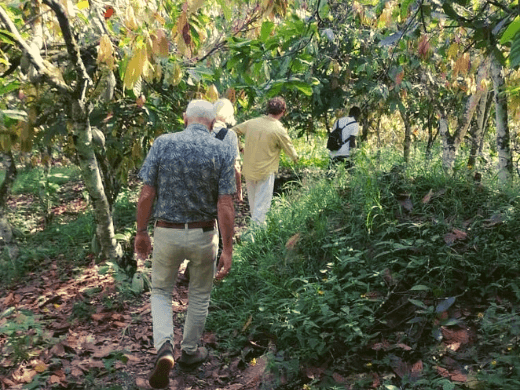
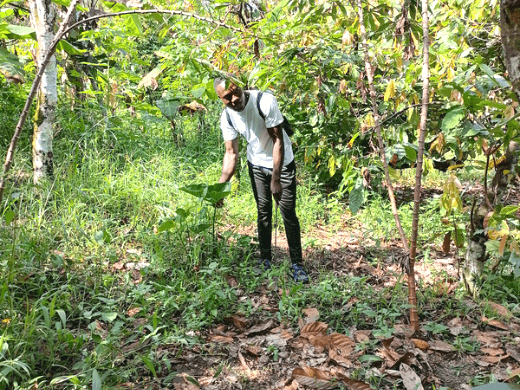

Felix also talks about the medicinal effects of some plant and tree species we encounter. And look, on this cacao farm there are ripe fruits hanging. Isn’t a reason for bringing the machete after all. He grabs a fruit and we all taste. The outer layer is surprisingly sweet.
WHAT KIND OF HOUSES DO PEOPLE LIVE IN genuine GHANA?
We slowly leave the forest and pass a house under construction. One of the guests remarks that she is surprised that so many large houses are being built. And also mostly made of cement. Surely she had expected that it was poorer in Ghana and that more people lived in huts.
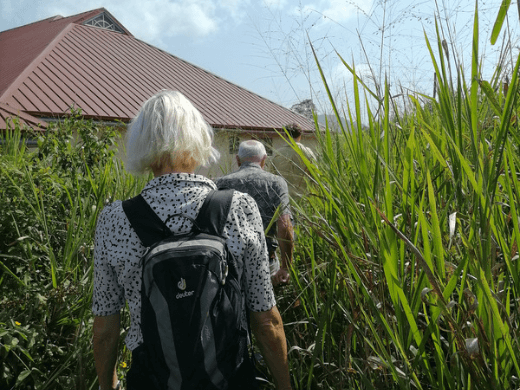
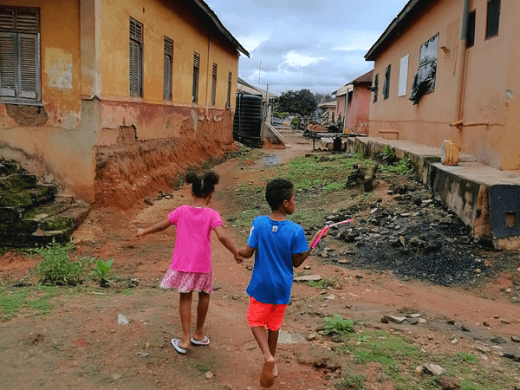
Believe me there are poor people in this African country. People live in huts. yet by no means, everyone is poor. Felix also explains that sometimes houses are still built from mud blocks, but then the plaster is cement.
WHAT IS THE MAIN RELIGION IN GHANA?
We pass the stream, which is called a river here. On the bridge lie a few tomatoes, an orange and a piece of wood. Why is that lying there a guest asks. Felix explains that the spirit of the river is sacred and that the people who have harvested give an offering to the river. The guests ask if everyone in the village believes if the river is sacred and Felix answers that the majority of people see it that way. He also explains that the vast majority of locals are Christians. There are more than 10 churches in our village and 2 mosques. But besides that, people place a lot of value on traditional beliefs.
WHAT ABOUT SCHOOLS?


We walk into the village. On our left we see Banko Women Organization, also part of the village walk, and on the right we see a school. The guests want to know about the education system. Felix starts talking about the kindergarten, primary and Junior High School. The village tour continues for a while, you can see a brief impression on the following pictures. We would love to invite you when you visit us!
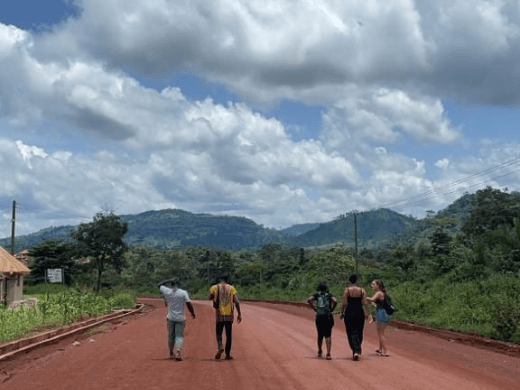
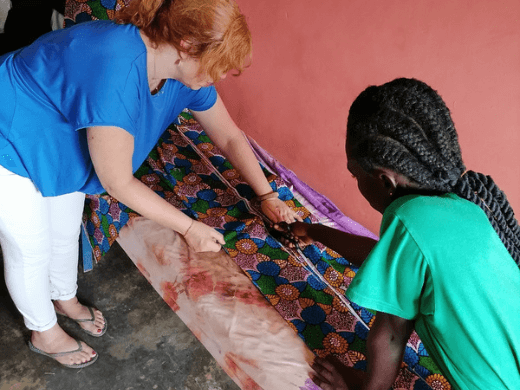
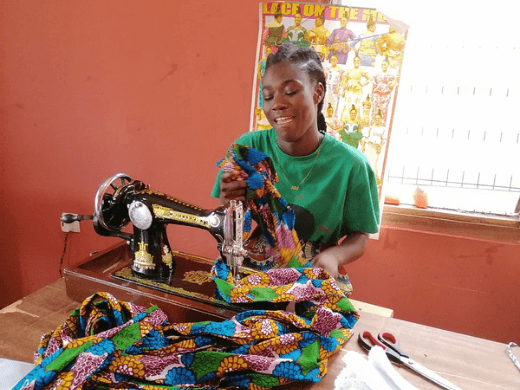
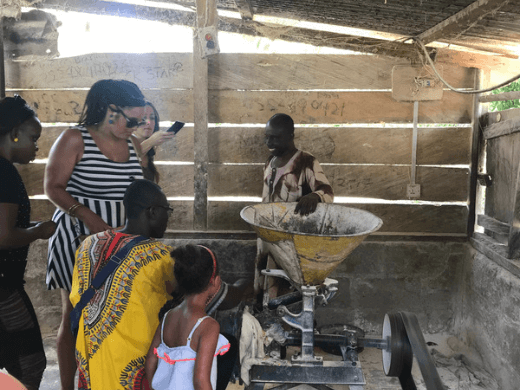
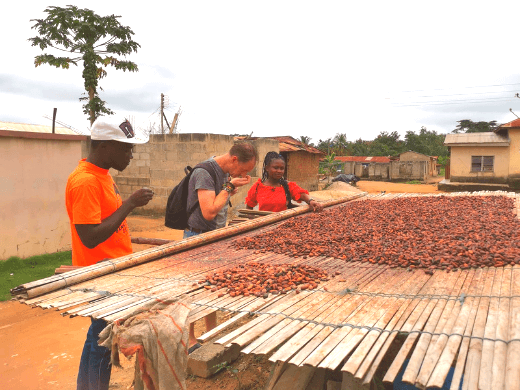
5 TIPS TO HELP YOU DISCOVER AND EXPERIENCE GHANA
Before we have even really reached the village, you have already discovered and learned 5 important things about Ghanaian life. Of course, the real and genuine Ghana involves more than just everyday life. Nature, art, craft, music and dance are also part of it. The expectation that many travelers seem to have that traditional drums and dance are still part of daily life is not true. Just like we in the Netherlands don’t do folk dancing every day either….
Our tips to make your trip through Ghana even more fun and interesting.
- Have an open mind and vision, sometimes we already think we know how something works and forget to really dig in.
- Ask your questions to people who know everything about life in Ghana and not just fellow travelers
- Try not to see too much. Ghana is 7 times bigger than the Netherlands, you can’t see everything in 3 weeks!
- Try to add a festival to your program, if not you can go to Kokrobite on a Friday night for a traditional drum and dance performance. Jennifer wrote a blogpost about festivals in Ghana.
- And the ultimate tip! Book an Ashanti tour with us. We will show you the most beautiful and interesting places in our area. We will include you in our Moon&Star family, cook with you and take you to church and when the timing is right even to a funeral or wedding.
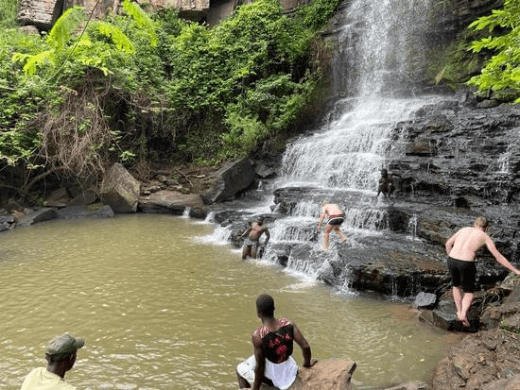
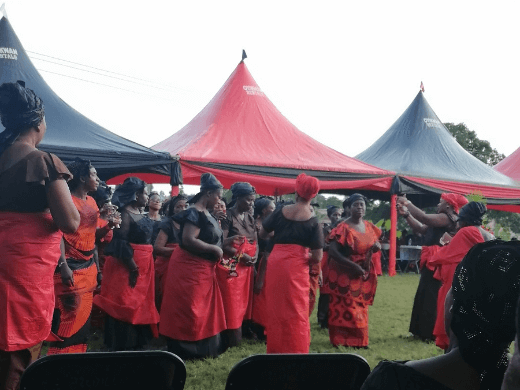

Enjoying a truly beautiful area of Ghana
The place itself, the surroundings, Patricia, Adyapong, Félix, Doris, Lydia,…are super friendly people, always willing to give good advice, a chat, but also give you time for yourself.
Kurt Simoens
The room and facilities are top notch. The food, yes the food, as a vegetarian I thoroughly enjoyed. Different dishes every day, pretty much organic, local dishes (but not too fatty or spicy) like redred, fufu (which as a guest you get to help prepare, so fun and educational!!!).
The garden is so beautiful and relaxing, big and just to chill on the terrace and watch the birds, squirrels,…is so much fun.
I took the 5-day tour which is a perfect combination of experiencing village life, hiking in the surrounding hills, visiting a nearby national park with waterfalls (where you can have a nice swim), learning about Kente, adinkra and cacao and visiting Ghana’s second largest city Kumasi…really worth booking this tour (by the way food, transportation and accommodation are included in the price, which I find very convenient).
To sum everything up. Moon and Star is a perfect guesthouse that lets you enjoy so many different things at a leisurely pace (while also having time for yourself) in a truly beautiful area of Ghana.
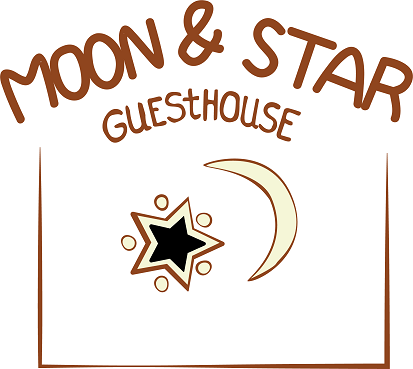
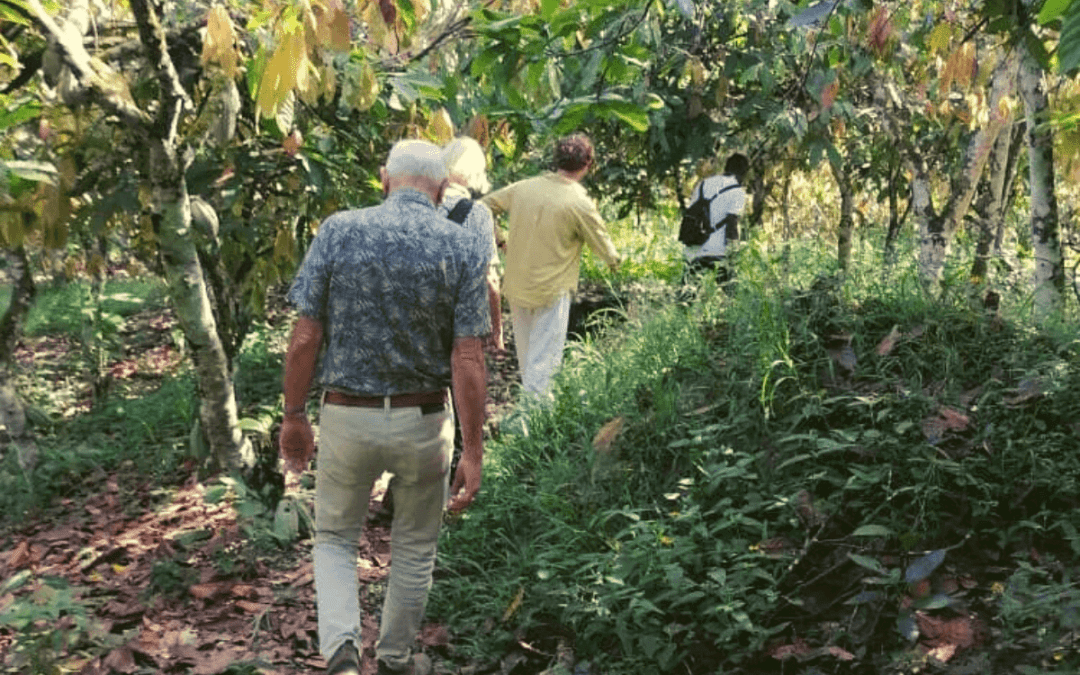
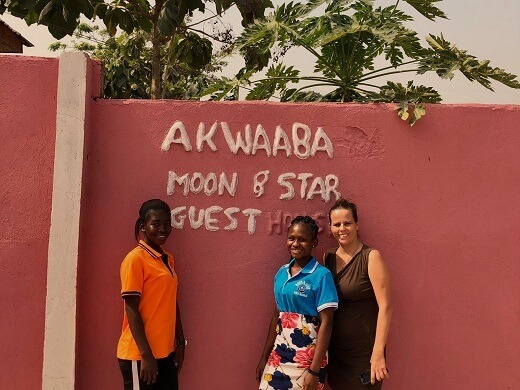
Thanks!
You’re very welcome!